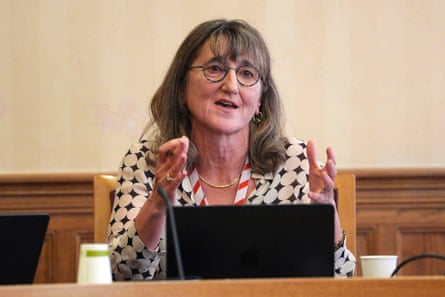Defiant peers have delivered an ultimatum to the government – calling on it to offer artists copyright protection against artificial intelligence companies or risk losing a key piece of legislation.
The government suffered a fifth defeat in the House of Lords over controversial plans to allow the AI companies to train their models using copyrighted material.
Peers voted by 221 to 116 on Wednesday to insist on an amendment to force AI companies to be transparent about what material they use to train their models.
Speaking at an awards event after the vote, Elton John said copyright protection was an “existential issue” for artists and urged the government “to do the right thing”.
He added: “We will not let the government forget their promise to support our creative industries. We will not back down and we will not quietly go away. This is just the beginning.”
Wednesday night’s vote prolongs a lengthy standoff between the Commons and Lords over the data bill, which has been used as a vehicle by campaigners to oppose the government’s proposed copyright reforms.
Resistance to the changes in the Lords has been led by Beeban Kidron, a cross-bench peer and film director, whose amendments have been repeatedly backed by the upper chamber.
The data bill now faces the prospect of being shelved unless the Commons accepts the Kidron amendment or proposes an alternative.
Maggie Jones, the Lords minister for the digital economy and online safety, had urged peers to vote against the Kidron amendment after the government offered last-minute concessions in an attempt to stave off another defeat.
Before the vote, Jones said peers were “choosing whether they want the entire bill to fall” and that by voting for Kidron’s amendment they would “countenance the unprecedented – to try to collapse a bill that does nothing to weaken copyright law” but included other important measures including to combat sexually explicit deepfake images.
Kidron told peers: “This is our last chance to ask the government to provide a meaningful solution” and urged ministers to set out concrete steps to subject AI companies to copyright rules.
“It is not fair, not reasonable, not just, balanced or any other such word to stand in the way of the creative industries identifying those who are taking their work or their property. It is not neutral – it is aiding and abetting what we have called in the house widespread theft.
“We have asked privately and repeatedly on the floor of both houses what is the government going to do to stop the work of creatives from being stolen right now? The answer is nothing.”
Several peers pushed back against the suggestion that the Lords’ move was unprecedented and said the government was itself breaking precedent by not compromising. Tim Clement-Jones, the Liberal Democrat spokesperson for the digital economy, offered his party’s “staunch support” for Kidron’s amendment.

The Lords’ move puts the data bill in double insistence territory. This means the Commons and Lords cannot reach agreement over legislation. In this scenario, under parliamentary convention, the bill would fall unless ministers accept the rebel amendment or offer an alternative. A bill falling is extremely rare but not without precedent – it happened to the European parliamentary elections bill in the 1997-98 session.
Under parliamentary convention, the Commons has primacy as the elected house, and in rare instances where the Lords refuses to back down ministers can resort to the Parliament Act to pass the bill in the next parliamentary session. This would significantly delay the legislation.
In concessions offered to peers on Tuesday night, the government said it would commit to publishing further technical reports on the future of AI and copyright regulation and do so within nine months instead of 12.
“A number of noble Lords have voiced concerns during ping-pong that the government is not listening. This is simply not the case,” Jones said in her letter, reiterating that ministers regretted the way the Lords rebels had gone about the changes.
Jones stressed that the data bill was expected to generate £10bn of economic benefit by updating data protection law and that it would improve online safety, including by strengthening powers to ask social media companies to preserve data after the death of a child.
Kidron said: “It is in the gift of the government to accept the amendment, or put something meaningful in its place. They have failed to listen to the Lords, they have failed to listen to the creative sector, they have failed to listen to their own backbenchers.”
Under the government’s proposals, AI companies would be allowed to train their models using copyrighted work without permission unless the owner opts out. The plans have been fiercely criticised by creators and publishers including high-profile artists such as Paul McCartney and Tom Stoppard.
Peter Kyle, the technology secretary, has said he regretted the decision to launch a consultation on changing copyright law with the opt-out system as the “preferred option”. Campaigners against the changes believe that there is resistance inside Downing Street to making more substantial concessions.
.png)


